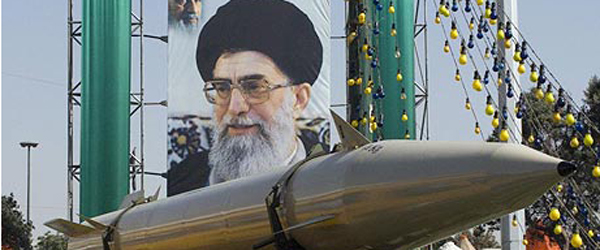
The fundamentalist regime in Iran came to the negotiating table from a position of utter weakness and not due to a change of heart by Tehran’s leadership over its nuclear project, Ambassador Ken Blackwell rightly points out today.
“It had its back against the wall.”
Over-stretched by three regional wars, with a restive population, particularly among the young and the women, and an economy on the verge of collapse, the regime in Iran was not in any position to seek concessions, he said.
“Due to efforts and huge risks by the National Council of Resistance of Iran (and its major constituent, the MEK and other intelligence sources) a lot has been exposed about Iran’s clandestine nuclear program. Even what is already known leads us to the conclusion that trust is totally misplaced. The ayatollahs have been masters of deception and deceit over the past decade regarding concealment of their nuclear program from the IAEA,” Amb. Blackwell wrote in TownHall.com.
“A better deal could have been had. We know this because of the power imbalance of those at the table; we also know it because of the effectiveness of the sanctions regime put in place after years of hard work.”
“But the most important flaw in the Obama administration’s argument is the narrative that this agreement was the only alternative to war,” he wrote.
“Isn’t this what Tehran wants the world to believe? Why not go for a tougher deal? And more importantly, why not reach out to moderate Iranians in the interest of changing the regime? If the US wanted to exert pressure on the ayatollahs, this would have been the most effective way.”
“The Iranians showed that they loath the regime in 2009. They came out in their millions crying for freedom. They have an organized resistance in the National Council of Resistance of Iran. They have an identifiable leader, Mrs. Maryam Rajavi with a solid base of support at home and abroad, and a program for a democratic future.”
“Maryam Rajavi leads the same movement that has acted as the eyes and ears of the world in exposing some of the most sensitive aspects of Iran’s clandestine nuclear program. Support for that movement would have undoubtedly made the regime feel as though it needed to compromise for its own survival. All politics is always local, even for the ayatollahs.”
“Congress should keep the pressure on the Ayatollahs on all fronts including their human rights abuses in Iran, their egregious conduct in the region, their support for terrorism, and their ballistic missile program. One lesson from this whole process is that if we keep real pressure on the Ayatollahs, they will cave in.”
Ambassador Ken Blackwell is a former Cincinnati mayor and US ambassador to the UN human rights commission.







